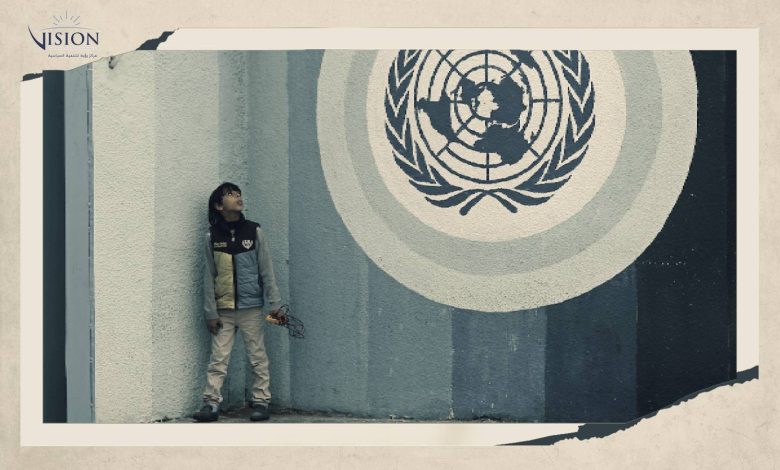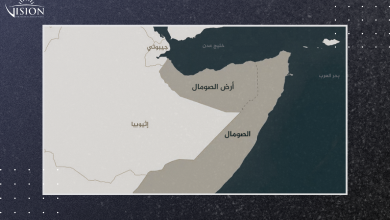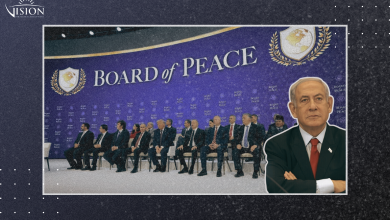The Claim of Israeli Self-Defense

Dina Elhindi*
International politics is an intricate system, the comprehension of the legality of self-defense contains a fundamental understanding of specific laws that pertain to the issue at hand. Throughout this, the reader will be able to understand the discourse that surrounds the legality behind the claims of Israeli self-defense within international relations. As the genocide of the Palestinian people has surpassed 4 months, the tensions persist globally, and the understanding of the implications and justifications of this concept is vital.
In the realm of international law, the act of self-defense constitutes as the legal justification for a nation to launch the use of armed force, essentially declaring war. This concept is more specifically referred to as jus ad bellum, meaning, “the right to wage war.” Prior to waging war, a country has the opportunity to settle their disputes without force, using peaceful methods, more specifically listed in Article 33 of the United Nations Charter. This article mentions various peaceful methods such as negotiation, judicial settlement, conciliation, arbitration, and so on. However, Article 33 does not command strict order that all methods are to be attempted before using force.
The claim of self-defense rises from a long occupation of the Palestinian people, as well as the illegal annexation of Palestinian territories. In order for a territory to be considered under an occupation, it, along with the civilians of the territories, must be placed under the authority of a hostile army. After the Six-Day War of 1967, Israel claimed jurisdiction over the Sinai Peninsula, the Golan Heights, the West Bank, the Gaza Strip, and East Jerusalem. In other words, Israel belligerently occupied the land.
Frequently, when challenged on the characterization of “occupation,” Zionists will often rebuttal with the assertion that they are reclaiming land that “once belonged to them.”
Palestinians must be well rounded in their understanding of the law and how to debunk these false assertions made by Zionists. That takes us to the question, “how do we respond to this in legal terms?” Let’s break this down;
To begin, there is no legality behind the Zionist argument of retrieving back what was once theirs, due to the fact that their actions dating back to 1948 have been a strict violation of the Genocide Conventions. Under Article II (c) of the Genocide Conventions, a State cannot,
“deliberately inflict on the group conditions of life calculated to bring about its physical destruction in whole or in par.”
In which, forced relocation has been inflicted upon the Palestinians by physical destruction. For example, the 1948 Nakba and the Six-Day War of 1967.
To be more specific in using Article II (c), since the massacre unraveled on October 7, the Israeli army has ordered Gazans to evacuate from Northern Gaza to the south, giving them a 24-hour time-frame. As this order amounted to forced displacement, direct violation of yet another law, being Rule 129 of International Humanitarian Law, stating;
“A. Parties to an international armed conflict may not deport or forcibly transfer the civilian population of an occupied territory, in whole or in part, unless the security of the civilians involved or imperative military reasons so demand.”
As the 1.1 million Gazans followed the evacuation order for so-called “safety and protection,” the Israeli army launched airstrikes killing over 70 and injuring more than 200 civilians. The evacuation order was in direct violation of Article II (c) of the Genocide Conventions. From forced displacement, to the infliction of harm on an individual’s life and physical destruction of Palestinian territories in the process.
Israel also constantly argues that under international law, self-defense can be put into effect when a state is threatened by another state, this is defined in Article 51 of the U.N. Charter. This Article writes;
“Nothing in the present Charter shall impair the inherent right of individual or collective self-defense if an armed attack occurs against a Member of the United Nations, until the Security Council has taken measures necessary to maintain international peace and security. Measures taken by Members in the exercise of this right of self-defense shall be immediately reported to the Security Council and shall not in any way affect the authority and responsibility of the Security Council under the present Charter to take at any time such action as it deems necessary in order to maintain or restore international peace and security.”
In other words, Article 51 of the U.N. Charter states that if any country in the United Nations were to get attacked, they have the right to invoke the act of self-defense until the United Nations intervenes. However, this Article does not apply to the state of Israel. A country must be attacked or feel threatened by another country. In this case, Israel is claiming to be threatened by an armed group, Hamas, emanating from a territory it occupies, considered to be kept under belligerent occupation. Using the example of the October 7th attack; Israel was not attacked by another state, rather, again, an armed group under occupation since 1967. Israel from the beginning of time does not regard Palestine to be a state, according to a former U.N. special rapporteur for the human rights situation in occupied Palestinian Territories, so the usage of Article 51 is invalid.
Further, to be an occupier, International Law prohibits Israel, who is an occupying power, from engaging in collective punishment or modifying the law as pleased through belligerent occupation. According to the Diakonia International Humanitarian Law Centre, an occupier;
- Has an obligation to provide for the basic needs of protected population;
- Has the obligation to facilitate humanitarian aid by third actors;
- Has the obligation to respect private property;
- Is prohibited from the destruction of property except where rendered absolutely necessary for military operations;
- Is strictly prohibited from forcible transfer of the protected population, while allowing for temporary evacuation for military operations;
- And is strictly prohibited from transferring the population into the occupied territory.
An example of collective punishment would be the illegal construction of the wall in the occupied West Bank. Israel began building the separation wall in June of 2002, with the claim of self-defense and the necessity for security. The International Court of Justice ruled that the construction of the wall goes against international law due to the fact that it destructs and confiscates Palestinian property, as well as imposes restrictions on Palestinian movement. Again, a belligerent occupier cannot use the argument of “self-defense” because an occupier cannot defend itself from the land it occupies.
Navigating the intricacies within international politics requires a great understanding of the legal system. While Israel continues to claim self-defense, legal analysis has unveiled their violations of international law. Malcolm X, following his visit to Gaza in 1964, expressed in his essay “Zionist Logic,”
“In short the Zionist argument to justify Israel’s present occupation of Arab Palestine has no intelligent or legal basis in history…”
Despite having about five decades to discover a legal basis, Israel has failed to support their claims with permissible legal foundations. It is essential that the international community continues to partake in efforts aimed to address the legality behind the Zionist colonization of Palestine while holding Israel accountable.
*Dina Elhindi: Researcher at the Ohio State University, Law & International Affairs
Citations:
- https://2001-2009.state.gov/r/pa/ho/time/ea/97187.htm
- https://www.amnesty.org/en/latest/news/2023/10/israel-opt-appalling-gaza-evacuation-order-must-be-rescinded-by-israel-immediately/
- https://ihl-databases.icrc.org/en/customary-ihl/v1/rule129#:~:text=into%20occupied%20territory.-,Rule%20129.,imperative%20military%20reasons%20so%20demand.
- https://www.un.org/en/about-us/un-charter/full-text#:~:text=Article%2051,maintain%20international%20peace%20and%20security.
- https://www.un.org/en/genocideprevention/documents/atrocity-crimes/Doc.1_Convention%20on%20the%20Prevention%20and%20Punishment%20of%20the%20Crime%20of%20Genocide.pdf
- https://remix.aljazeera.com/aje/PalestineRemix/phone/wall.html
- https://www.diakonia.se/ihl/resources/international-humanitarian-law/ihl-law-occupation/
- https://www.oxfordreference.com/display/10.1093/oi/authority.20110803100027481#:~:text=The%20right%20to%20wage%20war.
- https://www.jadaliyya.com/Details/27551
- https://www.marxists.org/history/etol/newspape/socialist-viewpoint-us/mayjun_05/mayjun_05_21.htm





